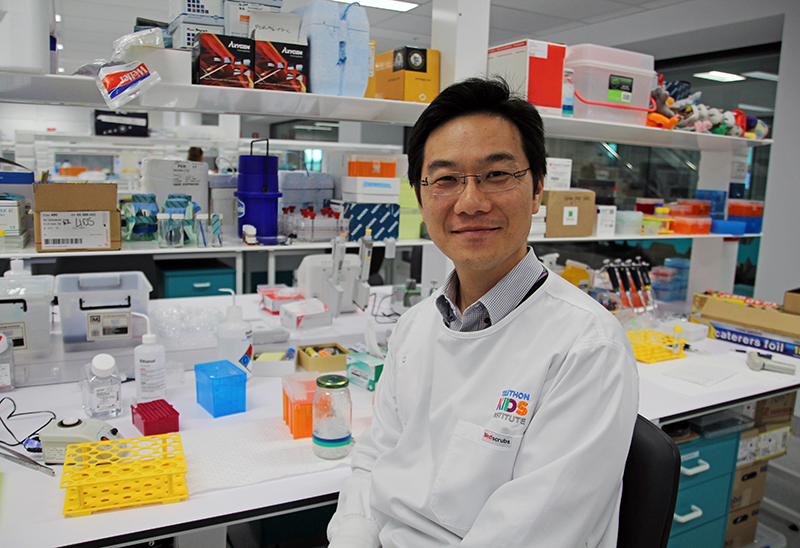Search
Aberrant promoter DNA methylation has been reported in childhood acute lymphoblastic leukaemia and has the potential to contribute to its onset and outcome
Continuous complete clinical remission in T-cell acute lymphoblastic leukemia (T-ALL) is now approaching 80% due to the implementation of aggressive...
Pre-clinical models that effectively recapitulate human disease are critical for expanding our knowledge of cancer biology and drug resistance mechanisms.
Human embryonic stem cell-derived neural stem cells (hESC-NSCs) are an attractive cell type for studying
Aberrant expression of the TLX1/HOX11 proto-oncogene is associated with a significant subset of T-cell acute lymphoblastic leukemias...
We examined the baseline profile of a panel of T-ALL cell lines to determine factors that contribute to GC resistance without prior drug selection.

Dr Laurence Cheung is doing everything he can to end the threat of childhood leukemia. His research has the potential to change countless lives, but he also has another important job – being a dad to three beautiful children.
We have revealed a novel SH2D1A gene mutation in a patient with XLP resulting in fulminant refractory EBV-driven HLH, which is a recognized severe complication
Early intensification with postinduction myeloid-type chemotherapy courses did not significantly improve outcome for infant acute lymphoblastic leukemia
In this study, we investigate the in vivo synergy between romidepsin and cytarabine
